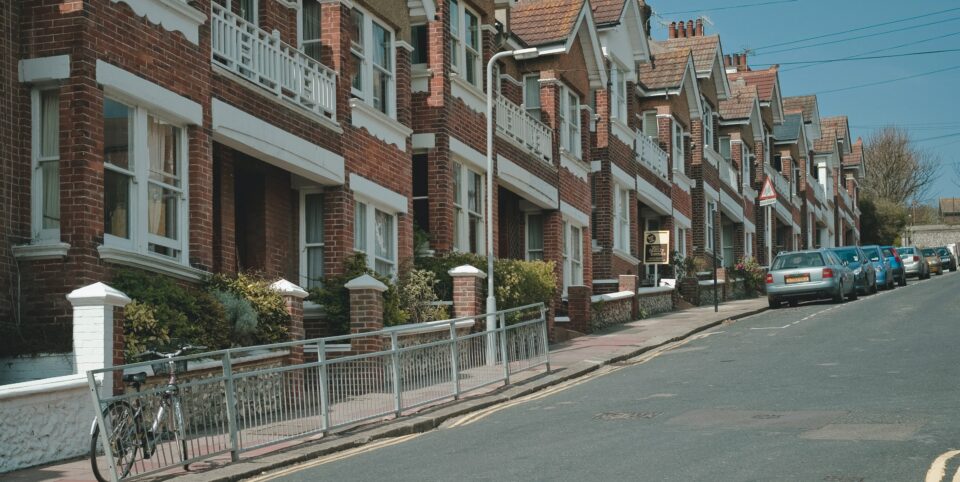Contact
020 4515 6728
info@ccameron.co.uk
Charles Cameron & Associates
Blackfriars Foundry
154-156 Blackfriars Road
London SE1 8EN
Type Filter - Articles and Blogs
Five things that can go wrong when you buy your first house (and what you can do about them)
July 14, 2020
Information published was correct at the time of writing
-

No one said buying your first home was going to be easy. It can be a lengthy process that involves finding a property, borrowing large amounts of money, dealing with surveyors, banks and vendors – things can – and often do – go wrong.
So, it’s vital to keep everything in perspective, accept there’ll be bumps in the road and prepare yourself for the most common obstacles.
Here then, are five problems you might face and what you can do to overcome them without getting too stressed!
- You don’t get the funding you need
You’ve found the perfect home. The vendors want to sell and your nice interior-designer friend has already drawn up plans for the fancy new kitchen. The only problem is the mortgage – you discover you can’t borrow enough to cover the house price. To avoid this scenario completely, before you start viewing properties, you should speak to one of our advisers who will calculate how much you can afford and provide you with an ‘agreement in principle’. This is a document that shows how much a mortgage provider will lend you – it lasts up to 90 days. One other thing: all lenders have their own lending criteria and so you could be eligible for higher or lower loan amounts depending on your circumstances and the lender you go to. Charles Cameron & Associates will be able to find the best deals for you from every lender in the market, so when you make your offer, you’re doing so in confidence.
- The survey comes back with bad news
When you buy a property, your lender will commission an independent surveyor to check for faults – this could be things like rotting windows, blocked drains or structural defects. The survey could return a valuation which is lower than the agreed purchase price – a ‘down valuation’. This would mean you would ether need to put more money towards your deposit, renegotiate the price with the seller or, if affordable, increase your mortgage amount, which could effect your interest rate if the new amount changes your loan to value. The important thing is to keep the findings in perspective. If the problems are small, try to see past them – you don’t want to lose your dream home over a minor problem that can easily be fixed – but if they’re more serious don’t be afraid to walk away.
- You get gazumped
Gazumping is when a rival buyer makes a higher bid on the property you’re in the process of purchasing. It’s unpleasant and unfair. However it is also legal. Even if you and the vendor have agreed a sale in principle, unless you’ve exchanged contracts, there’s nothing to stop someone else making a higher offer. (Please note: the purchase process is different in Scotland, so check with our local adviser to fully understand the purchase process). While you can’t stop it, you can buy ‘buyer protection insurance’, which will cover the costs you’ve incurred if it happens to you. Unfortunately, your only other option might be to raise your offer to match your new rival buyer. However, remember that for many vendors, it’s not just the offer price they look at when choosing a buyer. As a first-time buyer you are in a strong position as you can proceed quickly, assuming you have your mortgage in place.
- Your solicitor isn’t up to scratch
When you start with the house-buying journey, you need experts who will guide you through the process. Along with a great mortgage advisor, a solicitor is one of them. However, if your solicitor isn’t up to scratch, you have the right to go to another one. Before you do, you should check your contract – if you have a ‘no completion, no fee’ agreement you can walk away without paying a penny. If not, you’ll need to pay them for the work done. They’ll then transfer any paperwork to your new solicitor so you can carry on with the process. One thing to remember: the later you change your solicitor, the more complicated it becomes and you will need to check with your broker that your new solicitor is on the lenders panel of approved conveyancers.
- You get cold feet
The moment you walked in the property, it just felt right. You made an offer. It was accepted and so the process began. A few weeks on, perhaps you’re not so sure? The good news is that in England and Wales, as long as you’ve not exchanged contracts, you’re free to walk away. Your mortgage offer can be up to 90 days, which means as long as you’re quick, you can offer on another property without having to arrange a new one, though the new property must meet lender criteria and will be subject to a valuation. And if things do take longer and you need to reapply for your mortgage, Charles Cameron will be able to arrange it with the minimum of fuss.



